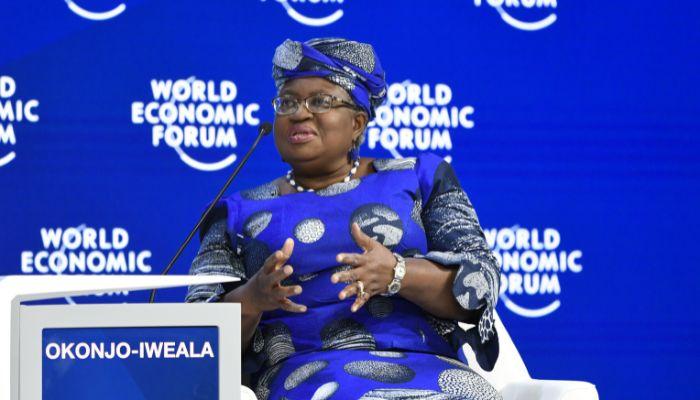WTO Urges Africa to Boost Internal Trade, Reduce Dependence on Global Powers - ENA English
WTO Urges Africa to Boost Internal Trade, Reduce Dependence on Global Powers

Addis Ababa, April 26, 2025 (ENA) ---- As Africa braces for the fallout from sweeping new U.S. tariffs, the continent must accelerate efforts to boost internal trade and reduce dependence on global powers, Ngozi Okonjo-Iweala, Director-General World Trade Organization (WTO) warned Friday.
Speaking on the sidelines of the IMF and World Bank Spring Meetings in Washington, Okonjo-Iweala, however, downplayed the overall macroeconomic impact of the April 2 tariffs imposed by President Donald Trump, noting that only 6.5 percent of Africa’s exports are U.S.-bound and just 4.4 percent of its imports originate from America.
Still, she said, the broader picture reveals a deeper vulnerability which is that Africa is not trading enough, either internally or externally.
“We are not trading much, which is not a good thing,” she told reporters attending the meetings. “And within Africa, a handful of countries are very severely impacted.”
She said among the hardest hit is Lesotho, a small, low-income country that could see its GDP growth shaved by nearly half a percentage point.
The country exports roughly 200 million USD in textiles to the U.S., while importing just 3 million USD in return. Under the new reciprocal tariff regime, Lesotho faces levies as high as 50 percent on its outbound goods.
“If those tariffs are implemented, Lesotho will lose a lot of its exports to the U.S.,” Okonjo-Iweala said. “Even if it gains a little by exporting elsewhere, the net loss is significant.”
Ghana and Côte d’Ivoire also face steep challenges. Ghana was hit with a 10 percent tariff, while Côte d’Ivoire, which is an agricultural powerhouse exporting nearly 1 billion USD in cocoa to the U.S., saw a 21 percent duty imposed.
The WTO chief warned that such measures could destabilize West African economies heavily reliant on a narrow range of exports.
“Côte d’Ivoire’s cocoa income will disappear across the border if you have differential reciprocal tariffs,” she cautioned.
While appealing to Washington to consider exemptions for the poorest nations, Okonjo-Iweala said the continent must not wait for outside leniency.
She said the message is simply that Africa must become more self-reliant. “Aid is disappearing. We need investment.”
To achieve that, she emphasized the urgent need to mobilize domestic resources, streamline regulatory bottlenecks, and, above all, deepen intra-African trade, which currently accounts for only 16 percent to 20 percent of the continent’s commerce.
“We can’t afford to remain at the mercy of external shocks,” Okonjo-Iweala said. “This is a wake-up call.”